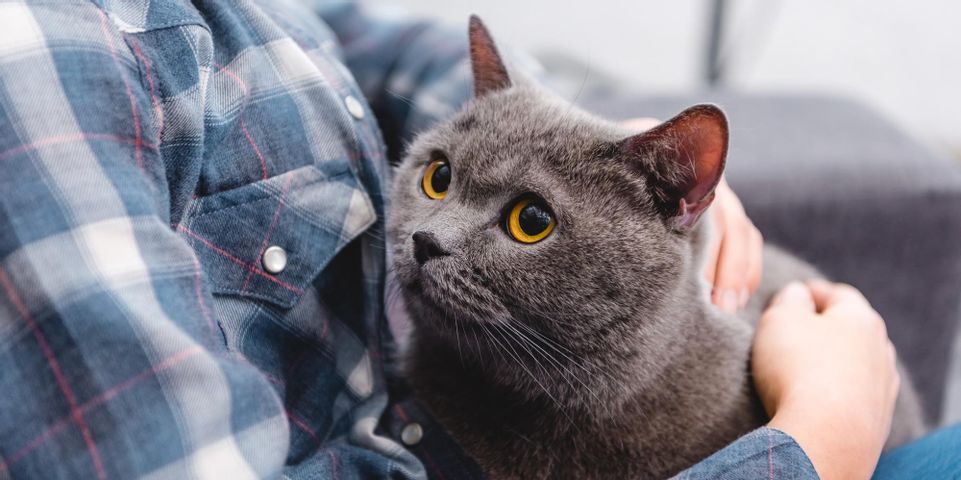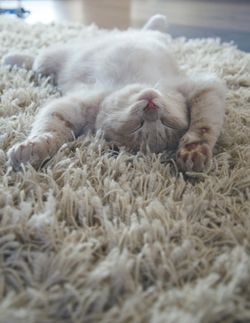
When your cat’s stomach is feeling out of sorts, their change in behavior is reasonably apparent. They’ll stop eating, maybe become less playful and more irritable, and have erratic visits to the litter box. When your pet shows signs of tummy trouble, a visit to the veterinarian sooner rather than later should be in order. Here are a few possibilities of what has your cat’s stomach in pain.
Stomach Problems Common in Cats
1. Colitis
 This condition causes inflammation of the large intestine, which can result in frequent and painful bowel movements. Feces may also contain mucus and blood. Colitis typically occurs in cats five years and younger, and it’s caused by tumors, changes in food, allergies, intestinal blockages by foreign objects (like a swallowed toy), and other diseases. While this condition can’t be cured, a veterinarian-recommended diet can help manage your cat’s symptoms.
This condition causes inflammation of the large intestine, which can result in frequent and painful bowel movements. Feces may also contain mucus and blood. Colitis typically occurs in cats five years and younger, and it’s caused by tumors, changes in food, allergies, intestinal blockages by foreign objects (like a swallowed toy), and other diseases. While this condition can’t be cured, a veterinarian-recommended diet can help manage your cat’s symptoms.
2. Irritable Bowel Syndrome
While irritable bowel syndrome (IBS) typically manifests itself as stomach discomfort, the chronic inflammation it creates is not usually linked to gastrointestinal disease. Food intolerances, the inability of cat food to pass through the gastrointestinal tract, and even mental distress are all contributing factors to IBS in cats. Medications are a standard treatment option for more severe IBS cases, but sometimes a more hypoallergenic diet can effectively treat it.
3. Constipation
This concern occurs when feces become too large or hard for the colon to pass. Causes of constipation include dehydration, neurologic problems, bowel obstructions, or a condition called megacolon, in which the colon expands under the duress of extended constipation. A veterinarian can perform an enema to treat this problem in the short-term, but increasing water intake, switching your cat to a high-fiber diet, and managing weight can alleviate the frequency of constipation.
4. Intestinal Parasites
Parasites like roundworms, hookworms, tapeworms, and whipworms are all common in cats. Kittens can get them from their mother’s milk if it’s infected with roundworm larvae. Adults can ingest them from infected dirt or prey animals. When untreated, cats will get very sick with vomiting, diarrhea, weight loss, and stunted growth, but treatment is as simple as proper diagnosis and a deworming medication prescribed by a veterinarian.
No matter when or why your pet needs veterinary care, Animal Care Center of Fairfield is here to help. Their Lebanon, OH, clinic offers a knowledgeable alternative to emergency vet care with extended doctor hours that avoid animal hospital prices. Whether it’s a bowel blockage or a chronic condition that has your cat in pain, their team of veterinarians will accurately diagnose and help treat a wide variety of issues. For more information about their full range of services, visit their website or call (513) 829-6621 today.
About the Business
(22 reviews)
Have a question? Ask the experts!
Send your question

